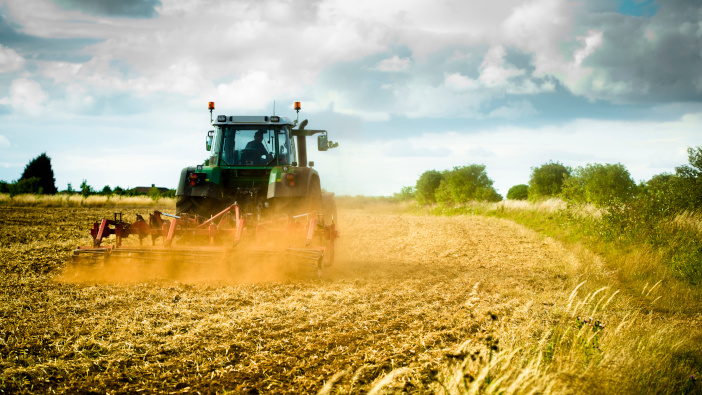While the cost of living crisis exacerbated by record inflation and rising farming input costs deems farming budgets insufficient, farmers must cast an eye for signs of insolvency to avoid their livelihoods from reaching a tipping point.
A perfect storm concocted by agricultural subsidy scheme reforms, government underspending, unprecedented weather patterns and growing pressure to invest in sustainable farming practices and digital transformation threatens the financial stability of UK farmers.
Gareth Rusling, a licensed insolvency practitioner and partner at Begbies Traynor Group involved in the Burdens Group sale, warns how the growing risk of insolvency can destabilise a business and the common pressures that feed into this.
Rising farming input costs
An unexpected increase in input costs can eviscerate cash flow crucial for maintaining farmland, livestock, and machinery.
Ringfencing working capital and company cash flow for company operations is essential. A lean operational structure is equally important to ensure financial efficiency, so an internal clean-up through company restructuring and turnaround could unlock and divert capital to areas most in need.
Agriculture and Horticulture Development Board (AHDB) research found that farm input costs have increased by an average of 44% since 2019. The cost of straw bedding has doubled, while electricity, fertiliser, animal feed and motor fuels increased by 38–50%.

Empty funding pot for agriculture
The AHDB research found that a combination of systematic government underspend and inflation has eroded the funding pot available to farmers across the UK.
While farm input prices increased in line with inflation, government funding for agriculture has remained unchanged since 2019. To negate the effect of inflation, a minimum top-up of £1 billion is required to replenish the funding pot.
Government funding is disproportionate to the true costs of operating a farm, so what must farms do to overcome the squeeze on their finances and reduce the risk of insolvency?
- Managing a farm’s growing finances stringently and professionally reduces cash flow pressure and aids in forecasting cash shortfalls
- Building sufficient reserves is an essential contingency against unexpected rising input costs
- Prompt debt collection reduces exposure to bad debt and helps consistently replenish cash flow
- Debt restructuring organises business debts, frees up cash flow and restores financial health
- Insolvency support helps raise funds for creditors and supports debt negotiations
Turning a blind eye to deteriorating financial health could threaten your ability to keep business debts under control, pay contractors in a timely fashion and fund vital supplies for your farm.
Rent for tenant farmers on the up
Rent for tenant farmers contributes to the bulk of a farm’s outgoings, and if this is up for review, an incoming increase could be inevitable.
Rent is determined by productivity and growth potential, alongside comparable lettings, so arable results are a direct mitigating factor, in addition to rental demand. If market conditions are unforgiving, consider renegotiating your rental agreement and the rent review schedule.
Sustainable farming practices – at a cost
Sustainable farming reduces the reliance of farms on expensive inputs and increases their resilience against climate change. While sustainable farming protects crops from extreme weather, improves soil vitality and accelerates yields, the transitional costs must be affordable and sustainable.
Government incentives to adopt sustainable farming support this transition, however, the long-term financial commitments, including rising labour costs, must be factored into your budget.
This could prove a worthwhile investment when factoring in the true costs of climate change attributed to limited harvests, poor quality produce, crop failures, soil degradation, waterlogging and inhospitable tractor conditions.
Insolvency support for farming and agriculture businesses
The agriculture community contributed £13.7 billion to the UK economy in 2023, produces 50% of the food we eat, and employs half a million people. It is a volatile market vulnerable to external factors, such as extreme weather conditions, economic uncertainty, and rising running costs.
The avenues available to a farm in financial difficulty include immediate aid from farming charities and long-term support through a licensed insolvency practitioner.
Insolvency help for farms and agriculture businesses include:
- Agricultural finance – From overdrafts, invoice finance and business loans, to asset finance, asset refinance and agri-tech finance, agricultural finance can provide a much-needed cash injection to boost cash flow and bridge the gap between payments.
- Restructuring – Restructuring and streamlining operations increase operational and financial efficiency, making way for a profitable farm.
- Contingency planning – Farming is highly dependent on volatile factors, such as weather, ground conditions, and consumer demand to thrive. A contingency plan to generate income when other areas of your business fall short can provide financial security.
- Company Administration – This is a formal insolvency procedure that provides breathing space while an administrator plans the next steps, such as restructuring or an asset sale.
- Company Voluntary Arrangement (CVA) – This insolvency option enables a company or a partnership (Partnership Voluntary Arrangement) to avoid insolvency by negotiating debts with creditors.
An insolvent farm may have a true shot at recovering, providing professional advice is sought out early, and without delay.
For more information go to www.begbies-traynor.com


